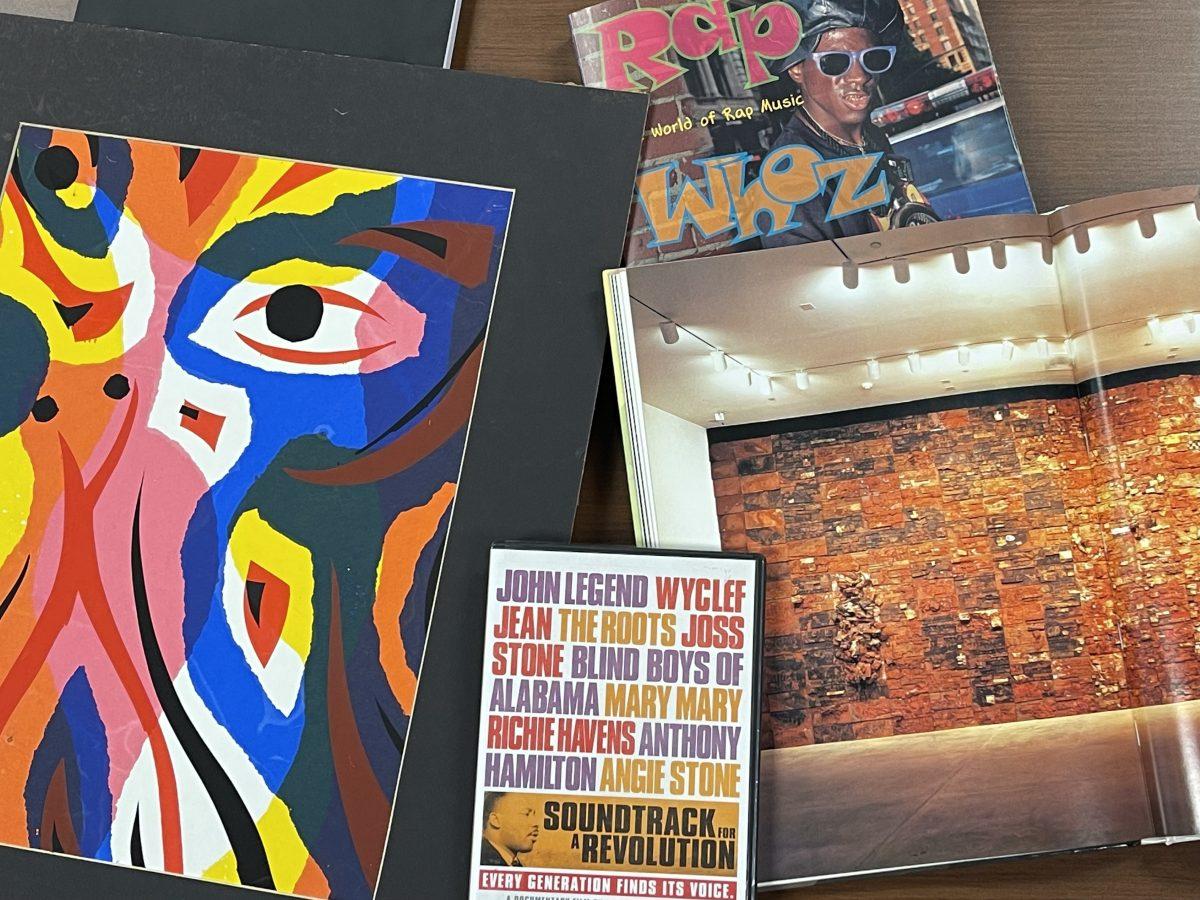The Everything Black Club is a new club based out of the African American Cultural Center’s (AACC) library that studies Black creators and their art, covering several topics within the arts.
Hanna Amme, the AACC library technician and leader of the Everything Black Club, said that the club is an enhanced book club.
“We look at the major classifications or sections of the arts, so painting, movies, literature, architecture, all of these different things, fashion and design,” Amme said. “That’s how I decided to choose the subject topics, by dividing it up into these major sections of the arts.”
Anthony Ramsey, a third-year studying international studies who works at the AACC said that the Everything Black Club is a space for Black and non-Black students alike to openly discuss topics and interests about Black creators the University doesn’t offer classes on.
“Last week we did animation, like animated series, characters and voice actors,” Ramsey said. “The week before that was Black fashion, so we talked about Black designers, Black-inspired fashion lines and different fashion topics that come from other areas of the world, Africa or the Black diaspora.”
Amme said the Everything Black Club is about finding home, which fits in with the AACC’s upcoming anniversary of moving into Witherspoon Student Center.
“The AACC is celebrating its 30th anniversary of finding home in Witherspoon and this year, all of our missions and goals are about finding home,” Amme said. “Whether it’s on campus or in general, we’re talking about finding home. The Everything Black Club fits in with that mission in the sense that we’re trying to find home within the arts. Where are we, how do we exist, what messages have we had to say and how has that been expanded?”
Amme said she kept the name of the club broad because the meetings cover a wide range of culture and topics.
“I kept [the name] broad, ‘everything Black,’ because it’s not just African American, it’s African diaspora as well as African on the continent of Africa, so we look at everything,” Amme said. “We look at the roots, we look at how [the art] is existing now, we look at how it is existing in the diaspora, so yeah it’s been a good couple of meetings so far.”
The club meetings include an introduction to the topic, sharing of students’ favorite art pieces and an open discussion.
“I introduce the topic, I introduce some key points for everyone, so everyone is on a level playing field, and then I ask them to engage by coming in with their favorites,” Amme said.
“So, for Black indie films I just showcased my favorite Black indie films, but the next meeting was Black music, so I said to bring in your favorite artist, bring in your favorite piece of work, whether it’s an album, a track or something and we’ll listen to it and we’ll discuss it.
Ramsey said the club has helped them learn about their culture and the impact Black creativity has had on the arts and society.
“Being able to do this club and being involved with this experience has really enlightened me to the vast impact that Black Americans and people of the Black diaspora have had on different genres and topics,” Ramsey said. “It’s made me realize how special to our society it is and how ingenious and creative and driven we are and we have risen above our station to thrive in a society that doesn’t want us to.”
Amme said she wants students to know it is OK to come into the club not knowing anything.
“I think the best thing about the club is that you get to ask all the questions,” Amme said. “I know I’m giving a brief introduction and then we’re looking at your favorites, so there’s questions all over that can span wherever, and you can come in with questions because, I may not have the answers immediately, but we’ll find it out.
Amme said making space to discuss Black art and artists is especially important at a place like NC State.
“[The club is] mainly tied around the 30th anniversary but, even outside of the 30th anniversary, especially on a campus like NC State, where it’s very STEM focused, it is very important to highlight the arts, to highlight popular culture, and because, for lack of a better term, the Black existence in American culture has either been politicized or commodified, so this is a way we can reclaim that,” Amme said.
After initially pursuing a fine arts degree, Amme decided to broaden out from fine arts to art history and then history, where she was able to learn more about Black painters, performers, and architects.
“That’s really where I get to be like, ‘This is actually my favorite topic to talk about,’ because fine arts and also performers is where I really found joy,” Amme said. “Whether it’s community theaters or this, I really like seeing those kinds of productions. The last one I’m just interested in because I get to learn. We’re doing Black architects and architecture, and that one I’m like, ‘OK, I actually get to learn something about this,’ because you don’t think about it, but it is an art form and literally affecting the physical landscape of where you live and that’s huge.”
The Everything Black Club is looking for more students to join them to add more to the discussions.
“It’s a safe space,” Ramsey said. “It’s a fun time to just spill some tea, learn about Black heritage and all the things that Black society have done for America but also for our people.”
The next Everything Black Club meeting will be held on Thursday, Oct. 21 from 3 p.m. to 4 p.m. Check out the NC State University calendar to stay up to date on future meetings and upcoming topics.














